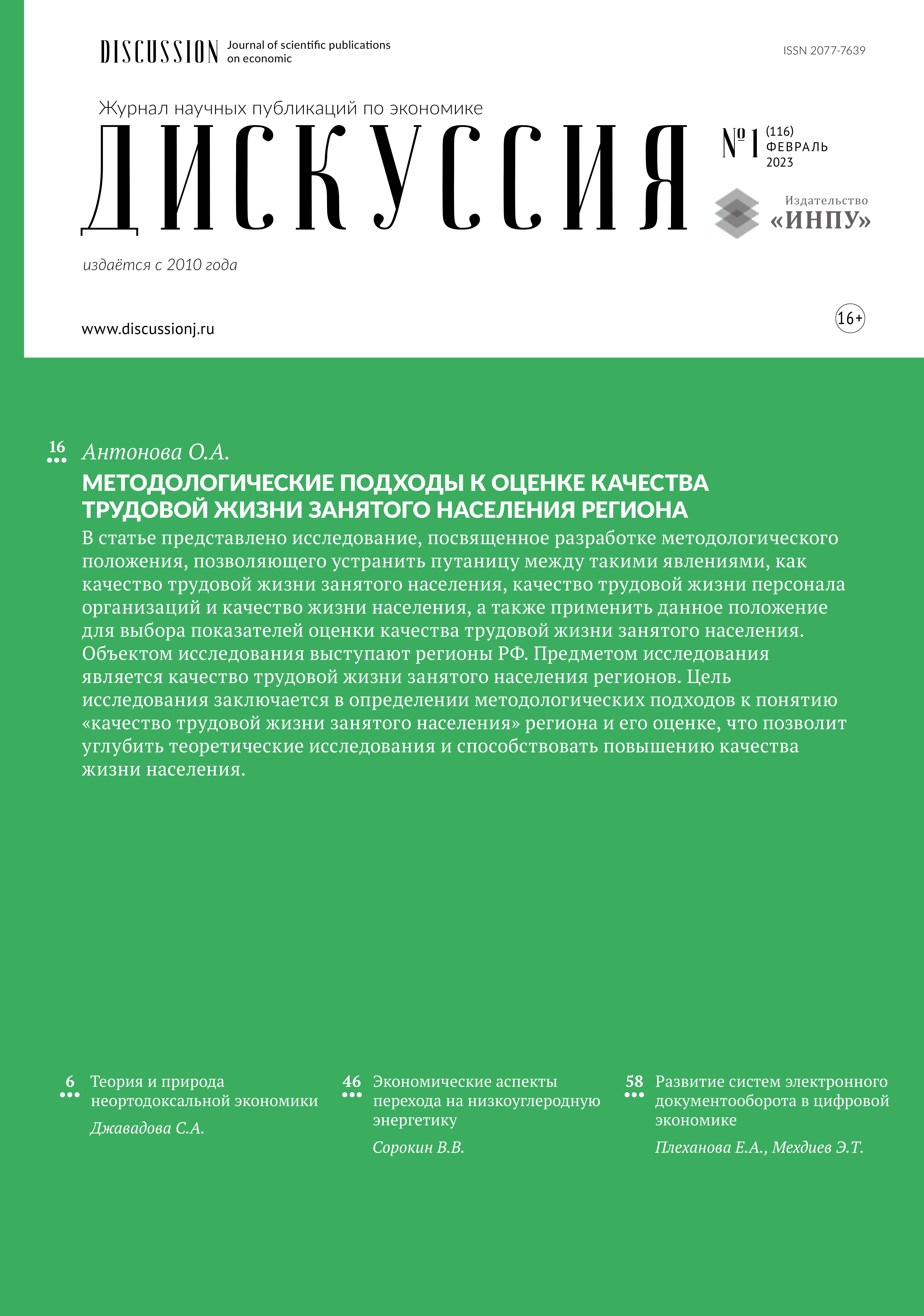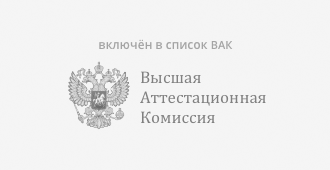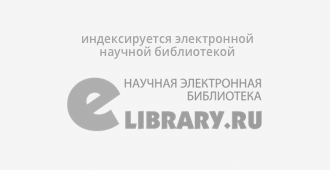Theory and nature of unorthodox
Keywords:
Mainstream, orthodox economics, heterodox economics, economic theory, Chinese Marxism, capitalism, Keynesian economicsAbstract
The study examines an important question: where is the line that determines the provability, applicability and necessity of the emergence of many theories of unorthodox economics in their applied meaning from the standpoint of public inquiry. Orthodox economics, which is characterized by formalism in the description of economic reality, at the same time has little to do with it in the actual application, establishing a kind of “ideal” prototype of economic reality. In turn, the unorthodox economy tends to get closer to the surrounding reality, but at the same time, in many particular cases, various theories of the unorthodox economy deviate so far from the mathematical description that often the positions of the theories become unprovable. This study aims to examine the content of the theory of unorthodox economics from the standpoint of the theoretical prerequisites for the organization of its nature. The object of research can be defined as economic knowledge, and the subject of research – as an informal descriptive model of economic knowledge that opposes the formal descriptive model. The study presents signs of the foundations that form the differences between orthodox and unorthodox economics. It is argued that the difference in orthodoxy and heterodoxy has a formal character and to a greater extent is determined by the point of view of Western researchers, which ignores the objectness of the surrounding reality.
Downloads
Metrics
References
Иванова, Н. Н. 2001.03.002-004. Прогресс неортодоксальных экономических теорий. (сводный реферат) / Н. Н. Иванова // Социальные и гуманитарные науки. Отечественная и зарубежная литература. Серия 2: Экономика. Реферативный журнал. – 2001. – № 3. – С. 8-15. – EDN BAYMXJ.
Кристиневич, С. А. Теоретическая экономика в поисках научных стандартов и отражения экономической реальности / С. А. Кристиневич // Белорусский экономический журнал. – 2022. – № 1(98). – С. 4-16. – DOI 10.46782/1818-4510-2022-1-4-16. – EDN VUHNRD.
Davis J. B. The nature of heterodox economics //Post-autistic economics review. – Post-Autistic Economics Review, Vol. 40 (December 1, 2006).- С. 23-30.
Davis J., Sent E. M. Heterodoxy's Strategic Pluralism //Nijmegen: Economie Working paper. – 2006.
D’IPPOLITI C., Roncaglia A. Heterodox economics and the history of economic thought //Advancing the Frontiers of Heterodox Economics. – Routledge, 2015. – С. 49-66. -eBook ISBN9781315850368.
Колбасников, В. П. Институционализм - неортодоксальная теория / В. П. Колбасников // Вестник МГУП имени Ивана Федорова. – 2011. – № 2. – С. 17-26. – EDN VNUDWP.
Пономарева, С. И. Формализации экономической теории: исторический и методологический аспект / С. И. Пономарева // Экономика, право и образование в условиях риска и неопределенности: тенденции и перспективы развития : материалы Международной научно-практической конференции, Нижний Тагил, 25 февраля 2016 года. – Нижний Тагил: Уральский государственный экономический университет, 2016. – С. 281-285. – EDN WDJJDN.
Dow S. C. et al. Plurality in orthodox and heterodox economics //Journal of Philosophical Economics. – 2008. – Т. 1. – №. 2. – С. 73-96.
Кульков, В. М. Гетеродоксальная теория: роль в исследовании экономики / В. М. Кульков // Философия хозяйства. – 2021. – № 5(137). – С. 59-68. – EDN ZVUNZD.
Трубецков, Д. И. Канонические модели нелинейной динамики в экономике / Д. И. Трубецков // Известия высших учебных заведений. Прикладная нелинейная динамика. – 2006. – Т. 14, № 2. – С. 75-93. – DOI 10.18500/0869-6632-2006-14-2-75-93. – EDN HTVHMX.
Петров, А. А. Математические модели экономики России / А. А. Петров, И. Г. Поспелов // Вестник Российской академии наук. – 2009. – Т. 79, № 6. – С. 492-506. – EDN KMLVPZ.
Мазуров, В. Д. Математические модели экономики : учебное пособие / В. Д. Мазуров ; Уральский государственный университет им. А. М. Горького. – Екатеринбург : Уральский государственный университет им. А.М.Горького, 1994. – 120 с. – ISBN 5-230-06705-5. – EDN ZANIRB.
Буров, В. Г. Китаизированный марксизм - теоретическая основа деятельности компартии Китая / В. Г. Буров // Азия и Африка сегодня. – 2019. – № 12. – С. 9-21. – DOI 10.31857/S032150750007091-2. – EDN MWHQXV.
Белокрылова, В. А. Трансформации марксизма в контексте китайского модернизационного проекта / В. А. Белокрылова // Известия Национальной академии наук Беларуси. Серия гуманитарных наук. – 2018. – Т. 63, № 2. – С. 160-167. – DOI 10.29235/2524-2369-2018-63-2-160-167. – EDN XTGPBJ.
Пономарева, С. И. Методологические проблемы формализации экономической теории / С. И. Пономарева // Известия Уральского государственного экономического университета. – 2016. – № 1(63). – С. 17-22. – EDN VSBPKT.
Lee F. S. Heterodox economics and its critics //Review of Political Economy. – 2012. – Т. 24. – №. 2. – С. 337-351.- DOI 10.1080/09538259.2012.664360.
Downloads
Published
How to Cite
Issue
Section
Categories
License
Copyright (c) 2023 С. А. Джавадова

This work is licensed under a Creative Commons Attribution-NonCommercial-NoDerivatives 4.0 International License.
Авторы, публикующие произведения в журнале «Дискуссия», соглашаются со следующими условиями:
- Авторы сохраняют за собой авторское право и предоставляют журналу право первой публикации произведения, одновременно лицензированной в соответствии с лицензией Creative Commons Attribution, позволяющей другим лицам пользоваться произведением с подтверждением авторства и первоначальной публикации в журнале «Дискуссия».
- Авторы вправе заключать с иными лицами лицензионные договоры на условиях простой (неисключительной) лицензии на использование опубликованного в журнале «Дискуссия» произведения (например, размещение его в базах данных университетов, публикация в книге), со ссылкой на его оригинальную публикацию в этом журнале.
- Автор гарантирует, что является правообладателем всех материалов, предоставляемых в редакцию, и что исключительные права на данные материалы не переданы или не предоставлены другим лицам.
- Авторам разрешено и рекомендуется размещать свое произведение в Интернете до и во время процесса подачи, поскольку это может привести к продуктивному обмену, а также к более раннему и более широкому цитированию опубликованных работ.
С момента загрузки произведения и сопроводительных материалов через раздел "Отправка материалов", автор полностью и безоговорочно принимает (акцептует) публичную оферту о заключении авторского соглашения об опубликовании произведения. В соотвтетствии с этим соглашением автор предоставляет издателю на безвозмездной основе неисключительную лицензию на использование созданного автором произведения.
С момента получения произведения и прилагаемых к нему материалов журнал "Дискуссия" вправе использовать полученные произведения без ограничений по своему усмотрению и в пределах всего срока действия исключительных прав, но с обязательным указанием имени автора (авторов) произведения, в том числе публиковать произведения (полностью или в сокращении) на территории всего мира, переводить на другие языки, направлять в репозитории научной информации, размещать в сети Интернет и использовать другими законными способами.









